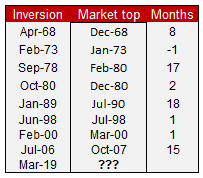NEWS

31 May 2019 - Hedge Clippings | 31 May 2019
|
||||
|
If you'd like to receive Hedge Clippings direct to your inbox each Friday
|

24 May 2019 - Hedge Clippings | The excitement's over, now back to work!
|
||||
|
If you'd like to receive Hedge Clippings direct to your inbox each Friday
|

20 May 2019 - Monday Hedge Clippings - Better late than never!
|
||||
|
If you'd like to receive Hedge Clippings direct to your inbox each Friday
|

3 May 2019 - Hedge Clippings | 03 May, 2019
|
||||
|
If you'd like to receive Hedge Clippings direct to your inbox each Friday
|

26 Apr 2019 - Hedge Clippings | 26 April, 2019
|
||||
|
If you'd like to receive Hedge Clippings direct to your inbox each Friday
|

12 Apr 2019 - Hedge Clippings | All eyes on the Federal Election. It's the economy, stupid!
|
||||
|
If you'd like to receive Hedge Clippings direct to your inbox each Friday
|

5 Apr 2019 - Hedge Clippings | Impending election, RBA uncertainty and ASIC's sharpened teeth
|
||||
|
If you'd like to receive Hedge Clippings direct to your inbox each Friday
|

29 Mar 2019 - Hedge Clippings | Yield inversion and the "R" word
|
||||
|
If you'd like to receive Hedge Clippings direct to your inbox each Friday
|

22 Mar 2019 - Hedge Clippings | 22 March 2019
|
||||
|
If you'd like to receive Hedge Clippings direct to your inbox each Friday
|

15 Mar 2019 - Hedge Clippings | Talking, talking, talking. Sooner or later you've got to walk the walk.
|
||||
|
If you'd like to receive Hedge Clippings direct to your inbox each Friday
|


